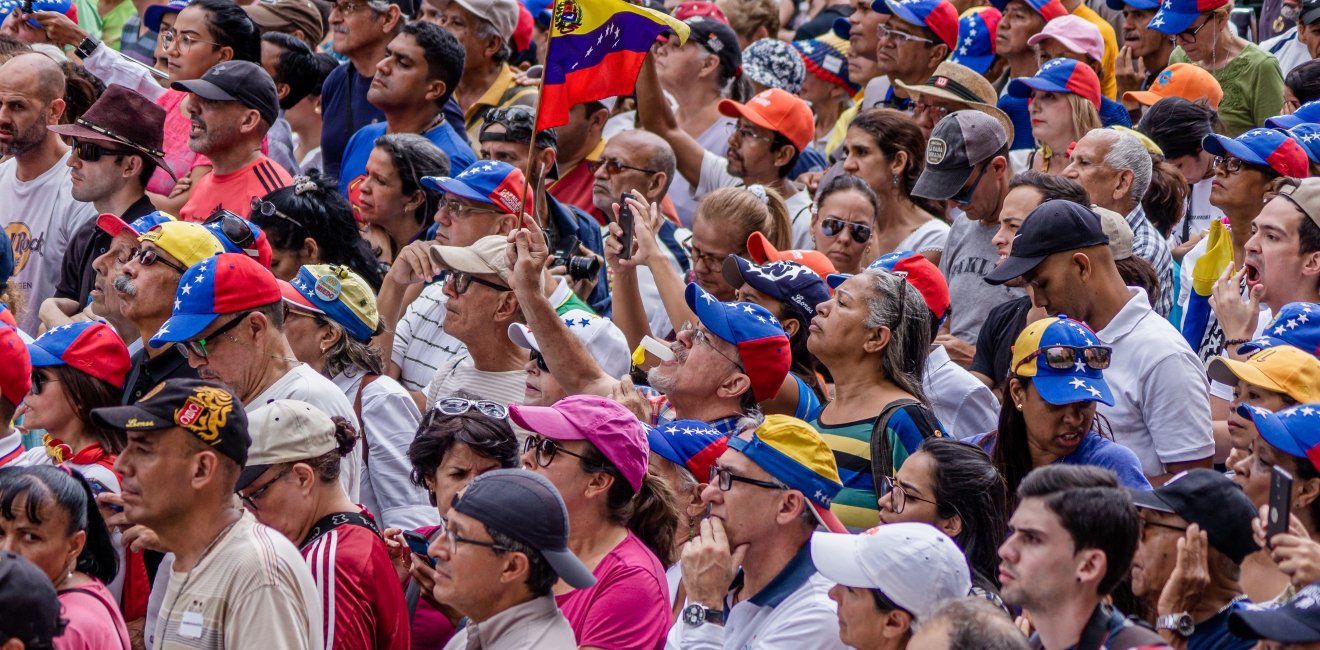Download Policy Brief | Spanish
Download Policy Brief | Portuguese
On April 30, 2019, the Venezuelan democratic opposition, led by Juan Guaidó, attempted to mount a decisive challenge to Venezuela’s authoritarian government, led by Nicolás Maduro. But the called-for uprising did not attract support from a critical mass of senior Venezuelan military leaders, and the effort did not trigger Maduro’s overthrow. Venezuela thus remains mired in a catastrophic impasse: a free-falling economy, rampant inflation, devastated productive capacity, substantial violence, intense polarization, widespread suffering, and massive emigration.
Against this backdrop, since May, the government of Norway has arranged two meetings of representatives from the Maduro and Guaidó camps, with a third round to take place this week in Barbados.
Is a negotiated democratic transition possible in Venezuela?
In this new Latin American Program policy brief, Abraham F. Lowenthal and David Smilde, recognized experts on democratic transitions and on Venezuela, argue that conflicts that appeared to be irreconcilable have sometimes been resolved in other countries that were once controlled by authoritarian regimes, and these experiences are relevant to Venezuela’s plight. They argue that, “when it becomes apparent that a change of regime on mutually acceptable terms is the only alternative to a painful stalemate, effective local leadership, with strong international support, can sometimes forge agreements that work.”
Lowenthal and Smilde offer insights about the ways that transitions have worked in the past, with reference to specific aspects of the Venezuelan case. They offer concrete recommendations for Venezuelans and for the international community in working toward a negotiated transition aimed at a stable and peaceful Venezuela, with a recovering economy and a healthy petroleum industry. They call on the international community to engage in skillful diplomacy and made commitments to help the parties move toward a settlement.







